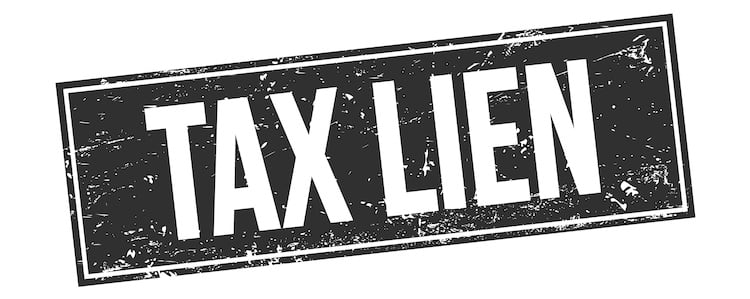
Tax Liens
What are tax liens? A tax lien is a legal claim imposed by the state or federal government on your property when you fail to pay a tax debt. The purpose of the lien is to ensure payment of the outstanding tax debt. If the debt remains unpaid, the government has the authority to seize the assets subject to the lien. This can include real estate, personal property, and financial assets.
Government agencies typically send notices to inform you when a lien has been placed on your property. However, if you have not received a notice but suspect a lien exists, there are alternative methods to confirm its existence. To determine if you have a federal tax lien, you can contact the IRS Centralized Lien Unit directly. Additionally, some secretary of state websites, like the UCC Search section on the California Secretary of State website, provide information on federal tax liens. You may also be order lien records through your county recorder’s office. This is because the IRS must work with state agencies to enforce the lien. For state liens, you can generally reach out to your state’s tax collection agency for updates on the existence of a lien. In the case of real property, you may also contact the county or county recorder where the property is located to obtain relevant information.
How Can Tax Liens Affect You?
Tax liens can have various impacts on you and your property. First, as mentioned earlier, the government agency that placed the lien can seize your property through a process called a levy if you fail to pay the tax debt or make arrangements to resolve the debt. A levy can involve wage garnishment or the direct seizure of funds from your financial accounts. The government can also use the levy to encumber your real and personal property. Government agencies usually issue multiple lien notices before proceeding with a levy. For instance, the IRS will typically notify you or attempt to do so before sending a 30-Day Intent to Levy Notice.
Second, a lien can have adverse effects on your credit. Tax liens can appear during property title searches. This may hinder your ability to obtain new lines of credit, credit cards, or personal loans. It may also complicate refinancing efforts for your home or other assets if a lien is discovered during a title search.
Third, certain liens can survive the bankruptcy process. While bankruptcy may provide relief from certain debts, it does not necessarily eliminate all forms of debt. If the IRS or another taxing authority has recorded a lien against your property for a tax debt, the lien will persist even if the underlying tax debt is discharged through bankruptcy. Consequently, if you plan to sell the property as part of the bankruptcy procedure, you will still need to satisfy the lien when transferring ownership. It is possible to challenge a tax lien in bankruptcy court, but the process is challenging.
Lastly, if a lien has been placed on your business, it will attach to all business property, including accounts linked to your business. This may disrupt your business operations and have significant implications on your income, as well as the income of your employees and suppliers. This can also be detrimental to the survival of your business as a whole.
How to Resolve a Lien
When it comes to resolving a lien, the most straightforward solution is to pay off the debt. If you have sufficient funds available, promptly paying off the lien after receiving notice is the most efficient resolution method. Tax agencies generally release liens within 30 days of the debt being fully paid. However, many taxpayers do not have the necessary funds to immediately satisfy the lien.
Another option is to establish a payment plan. Establishing a payment plan generally does not remove tax liens, but it can prevent the IRS or state taxing authority from filing a lien or filing additional tax liens. Eligibility for a payment plan varies by state, but the process is relatively straightforward with the IRS. You can apply for an IRS payment plan online. The specifics of the plan and qualification criteria depend on your individual tax circumstances, the amount owed, and the type of tax in question.
An Offer in Compromise (OIC) is an alternative solution. An OIC involves negotiating a settlement with a tax agency to reduce the tax debt to an amount lower than the full outstanding balance. When considering an OIC, the tax agency generally takes various factors into account, such as your ability to pay, income, expenses, and asset equity. If you choose to pursue an OIC, it can be beneficial to consult with a tax professional, such as a licensed tax attorney. The OIC process is complex, and each case is evaluated based on the taxpayer’s unique circumstances and specific eligibility requirements.
Additionally, you have the option to appeal the lien if you disagree with the tax agency’s decision. For the IRS, you can request a collection due process hearing from the IRS Office of Appeals to have a lien or levy notice reviewed. You may also have the option of a Collection Appeal Request or CAP request. This also applies to challenging an IRS employee’s decision regarding the lien. The appeals process may differ among state tax agencies, but contacting the agency directly will help you identify the appropriate avenue for filing an appeal.
Conclusion
Dealing with liens can be challenging and may leave you feeling helpless. However, RJS LAW is here to assist you through the lien process. RJS LAW is home to qualified and experienced tax, tax planning, estate and trust, and international tax attorneys who are available for a complimentary consultation. Please feel free to contact RJS LAW online or at (619) 595-1655.
Written by Marley Smith-Peters

Leave a Reply